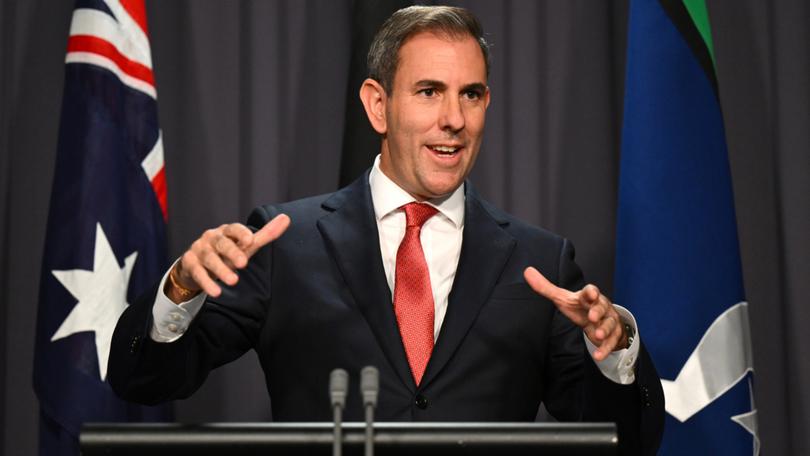Federal Budget 2024: Government banks on continued decline in inflation to drive strong disposable income rise
The Federal Government is banking on a continued decline in the inflation rate to drive what it expects will be some of the fastest growth in real disposable income in more than a decade.

The Federal Government is banking on a continued decline in the inflation rate to drive what it expects will be some of the fastest growth in real disposable income in more than a decade.
As more Australians enter the workforce and hold down jobs, Federal Budget forecasts suggest real disposable income will grow 3.5 per cent in the 2024-25 financial year. This is set to be the fastest growth excluding the pandemic.
Treasury expects a 4.5 percentage point contribution from higher incomes and a one percentage point contribution from the stage 3 tax cuts, which kick in from July 1.
Sign up to The Nightly's newsletters.
Get the first look at the digital newspaper, curated daily stories and breaking headlines delivered to your inbox.
By continuing you agree to our Terms and Privacy Policy.Inflation, according to the Reserve Bank of Australia’s forecasts, is expected to be 3.2 per cent by the end of the 2024-25 year.
Treasurer Jim Chalmers said the Budget — being keenly watched given the delicate balance to ensure it is not inflationary — was about allowing Australians to earn more and keep more of what they earned.
“We know people are under pressure and that’s why our wages policies and tax cuts for every taxpayer are so important,” Dr Chalmers said.
“This is all part of a big focus in the budget on helping to ease cost of living pressures.”
Household incomes have taken a battering amid high inflation and cost-of-living pressures, with real wages going backwards until the end of last year. The Government in February previously celebrated the first run of three successive quarters of real wages growth since 2018.
Treasury expects employment will keep growing even though the labour market as a whole will soften, and notes nominal wages are now growing at their fastest in 15 years.
“Continued growth in wages will contribute to the improvement in household disposable incomes over the coming year,” it says.
The tax cuts are expected to deliver an average of $1888 savings in 2024-25 compared to tax settings of the previous financial year.
The Treasurer on Wednesday downplayed suggestions the Budget had the largest role to play for besieged households seeking cost-of-living relief, following caution from the RBA that interest rates may have to stay on hold for longer. Some economists have even suggested another hike may be needed.
According to comparison site RateCity, average mortgagees would cop a $112 monthly hit on a $750,000 loan if the next RBA move is a hike in November. If that transpired, repayments would have increased $1927 per month since rate hikes began in May 2022.
While Dr Chalmers said he did not “precisely” see that he was trying to deliver a Budget that led to interest rate cuts this year, by lowering inflation.
“But I do see a big part of our role here is to make sure, particularly at the front end of the Budget, that we are doing what we can to take pressure off inflation,” he told ABC Radio, noting the rate had “come off quite considerably” over the past two years.
